7 Rules to LARP Shaping
First of all, this is by no means an official handbook for LARP shaping. To my knowledge such a handbook does not exist, but in my ongoing efforts to explore every facet of nerd culture I have found myself with 1.5 years of LARP shaping experience, and since nobody else seems to be writing something like this up I felt compelled to share what I've learned during my last 18 months of outdoor cooperative storytelling experience.
For those of you who found yourself here by accident I believe some Role-Play nomenclature is in order. First off, LARP is an acronym for Life Action Role Play. Basically Dungeons and Dragons outside, with 10 or more people, all creating a story together while fighting, acting, solving puzzles and riddles, making decisions and becoming someone else over the course of a weekend. During a LARP weekend, there are two groups of people who cooperatively tell the story together; the Players and the Shapers. Players become their characters and react and respond to the story in whatever way they feel like, and Shapers create the experience for Players to react to. In a perfect LARP, the relationship between Shapers and Players can and should be a beautiful back-and-forth that vacillates between warmth, resentment, and sometimes utter confusion. This is the heart of LARP.
So for anyone who wants to get into LARP shaping, or has way more experience than myself, here are my seven (of many) rules to writing and executing a successful LARP event.

1. The Players are the Main Characters
When writing any mod (an encounter written for the players to react to, like a scene in theatre) the one question any Shaper should be asking themselves is "What can the players do here." Protagonists are characters that are faced with challenging situations, have to make decisions, fight, create new bonds, succeed or fail, and ultimately change during the course of a story. The protagonists of LARP is first and foremost the Players, and Shapers should always write around them and the actions they could take during the course of an event.
No Shaper should get into this job (because it's more a job than a hobby) to play cool characters. First of all, Shaping is waaaaaay too much work for the small payoff of being able to walk out as a level 20 character and be all cool about it. Second of all, players care way more about their own characters and what is happening to them than any NPC (Non-Player Character) on the field. Players should be the ones making the decisions, saving the day, and being forced to make difficult decisions to create meaningful changes within the world.
Also, give them a real reason to do things. I remember as a player, I ran off to kill some guy or get something and thought to myself "Why would my character even do this? There are no stakes or incentives that apply to him at all." That's not good shaping. It can be something as trite as a princess to save, some ritual to stop, or some criminal to apprehend for the local authority, but Players should always have a reason to push forward. After all, they're not only your Protagonists, but also your Customers.
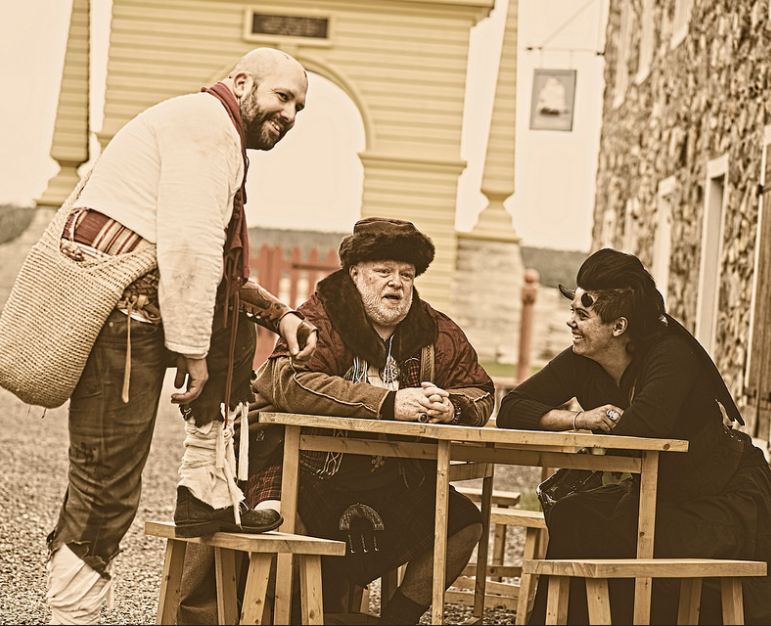
2. Less Theater, More Game
Look, I have nothing against theater. I've been in a lot of productions as a local actor, and I have the utmost esteem for the art, but theater is not LARP, and LARP is not theater for one very specific reason. Audience participation in LARP is the point, and audience participation in theater is mostly awkward and strange. There is nothing more boring to Players than two NPC's talking to each other. I might sound like a broken record here, but if you write a mod without taking into account Player agency and what they can do to change the outcome of the scene, and you just want to put on a spectacle or shove exposition in their face, that's just not the best kind of mod.
Every story requires exposition to set the stage, but very few mediums can get away with straight up telling the audience the setting, conflict, and stakes outside of an opening Star Wars crawl. Find interesting ways to tell the story while incorporating player action, like a morally dubious interrogation scene, a note in the pocket of a dead bandit, a clue dropped by a hapless investigator, or a story hook dropped in the gratitude of a saved hostage. All of these situations revolve around the Players DOING something, which is what a mod first and foremost should be focused on. It's just a simple question when designing a mod for players; "Is this theater, or a game?"

3. Think Outside Combat
So designing LARP can sometimes be a game of limitations. Do you want a giant dragon to descend from the sky to awe and terrify your players? Well sorry, you don't have Peter Jackson's budget for your local community LARP, so it's just not going to happen. Also, you carry absolutely everything in with you on Friday, and everything out on Sunday, and just try to create a props table for a three-day production after work in the woods. It's not easy.
One aspect of LARP that is not a limitation though, is that it takes place in the real world, and any game or challenge you can create out in the woods in life, is a game or challenge you can create in the woods in LARP. Here's a quick list of challenges Players can face outside of combat in a weekend of LARP.
- Role-play Challenges. Winning over a diplomat to gain political gossip or talking down a criminal from killing hostages.
- Morality Challenges. Will your players hand over an innocent man to be tested upon because he's somehow immune to vampirism? Will your Players allow a drug trade to flow through their trading post for a valuable payoff? Will your players side with a corporation focused on progress over a primitive wood elf tribe that believes in tradition and conservation? Make being good hard, and being bad tempting.
- Puzzles. Anything that can be in an escape room can be in a LARP. We actually built an escape room in the woods for one mod, because why not? It could be as easy as hiding something in the woods and giving the players some vague direction to go look. You could actually integrate some Sudoku or word puzzles put on a timer to really put the heat on.
- Stealth Challenges. There ain't no Stealth Rolls in LARP. Either be quiet or suffer the consequences. Make players gather some rare herb that just happens to grow beside a giant sleeping basilisk, or break out a political prisoner without alerting the guards.
- Physical Challenges: Just put something high in a tree and see how hard it is for the players to get it. Maybe they have to beat a fae in a non-alcoholic round of beer pong. Last season I had the players transport a glass a milk without spilling it while being attacked by kobolds. All praise the Lactose Nitros!
- Literally any Game You Played as a Kid: Oh no! The dryads built a hedge wall around the princess, and we have to barrel through it! (Red Rover) Oh no! We woke up the blind idiot God, and now he will kill anybody he hears! (Blind Man's Bluff) Oh no! The gorgon will turn anyone to stone that she thinks isn't a statue when she periodically turns around! (Red Light, Green Light). If you were looking for an excuse to play field day games as an adult, you hit the jackpot. Who doesn't want to beat a bunch of orks at tug-of-war?
- Take Inspiration from Anywhere: Seriously, video games, tv shows, books, anything. You could probably base a weekend on nothing other than episodes of Firefly just to see if anybody notices. LARP is open to any genre you think you can pull off. You want a noir crime drama? Put it in there. How's about a political thriller? Sure. Prison break? Easy! Slasher film? Well, you get the idea. Don't limit yourself to fantasy, but it's a fine place to start.
This is not to say combat should be avoided. LARP is probably the most multidisciplinary hobby I've ever been apart of, and everyone comes out for different reasons. Some people like acting and becoming someone else, some people like crafting and costuming, some people like the mechanics and character growth, some people like camping in the woods with a bunch of nerds, and some people like swinging their sexy new axe that just came in the mail to decapitate a wolf. As a Shaper you cater to your players, and a lot of players just love killing wolves.
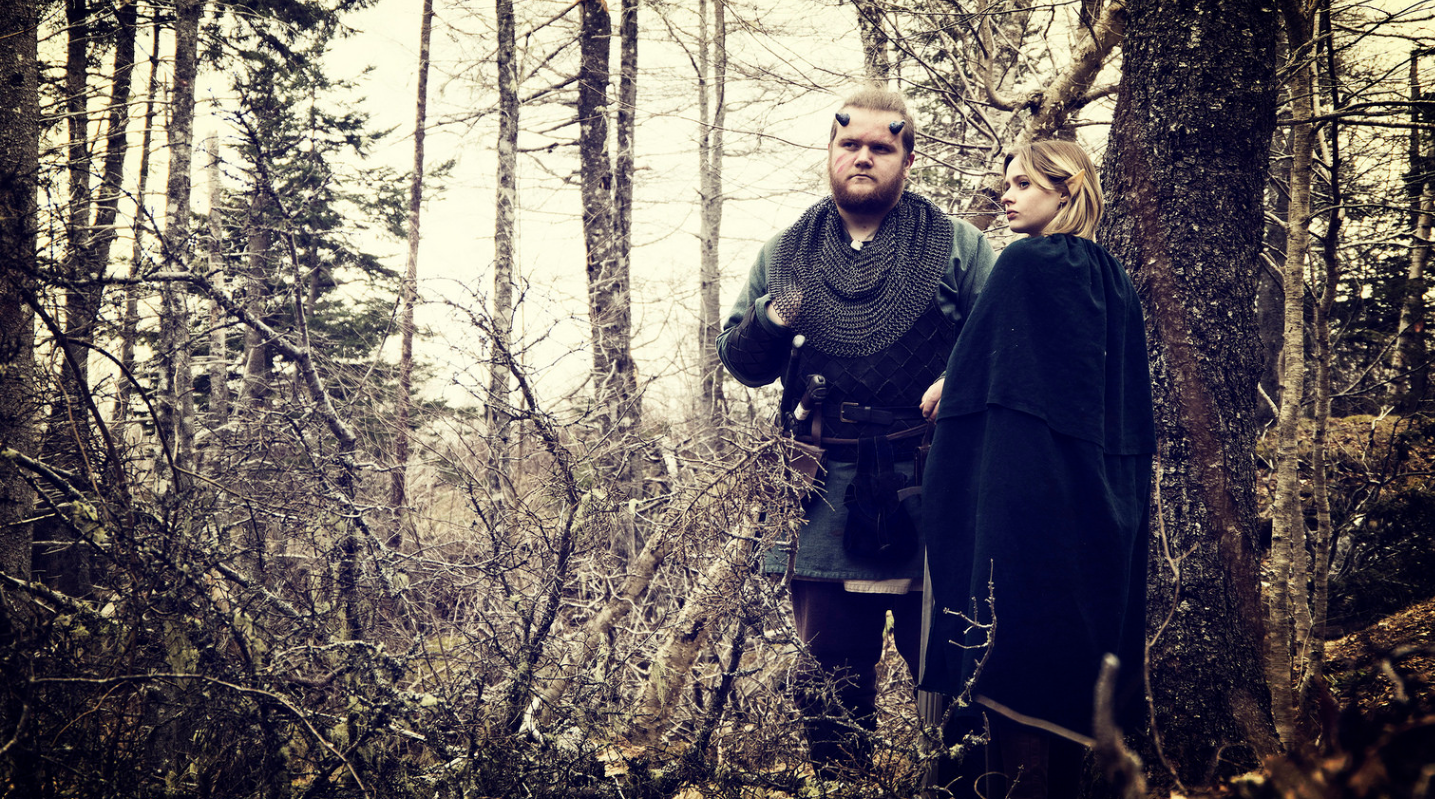
4. Pass/Fail Mechanics besides Dying
As a Shaper, survival as a goal for the Players really should be the bottom of the barrel. It's the simplest goal, and some would say it is the one with the highest stakes, but all you need for it narratively is people who want to kill you and for you to kill them. It's uncomplicated, and if you're LARP is anything like mine, the only way to gain experience for your character is pay event fees, which means character death is pretty darn close to taking people's money from their pockets. That's not to say you should never kill players, but one of the most frustrating situations a player can find themselves in is a death that felt unavoidable. Every death should accompany something learned, or a mistake made. Every death should feel avoidable, and help grow a character or a player. Shapers could walk in on Friday evening and drop a meteor on the entire LARP group if they wanted, but that would be bad Shaping. But I'm getting off topic.
There are far more rewards and punishments that can be delivered through LARP than only a pass/fail mechanic of whether you survived the weekend. Some rewards the Players could earn are political favors from an outside nation, a loyal ally in the woods, a merchant who will sell things to them they otherwise would not have access to, a better economy, more help from the local government, a better reputation on the world stage, a wandering ghost with valuable information, items found and items lost. All of these things could also be taken away and changed based on failure, and the best part of these rewards and punishments is they are far more interesting and the ability to fail them so much more compelling than killing your Players. These risks and rewards change the world state based on player action.
Also, give the Shaper and NPC's a win/loss condition directly opposed to the players. We spent one weekend coming up with tons of ideas to sneak drugs from one side of the play area to another. We bribed, we sneaked, we lied, we fought. To this day, the players have no idea how many drug shipments made it through their trade route, but we do, and we shifted the narrative based upon how well the Players did and how well we did, which gets to my next point.
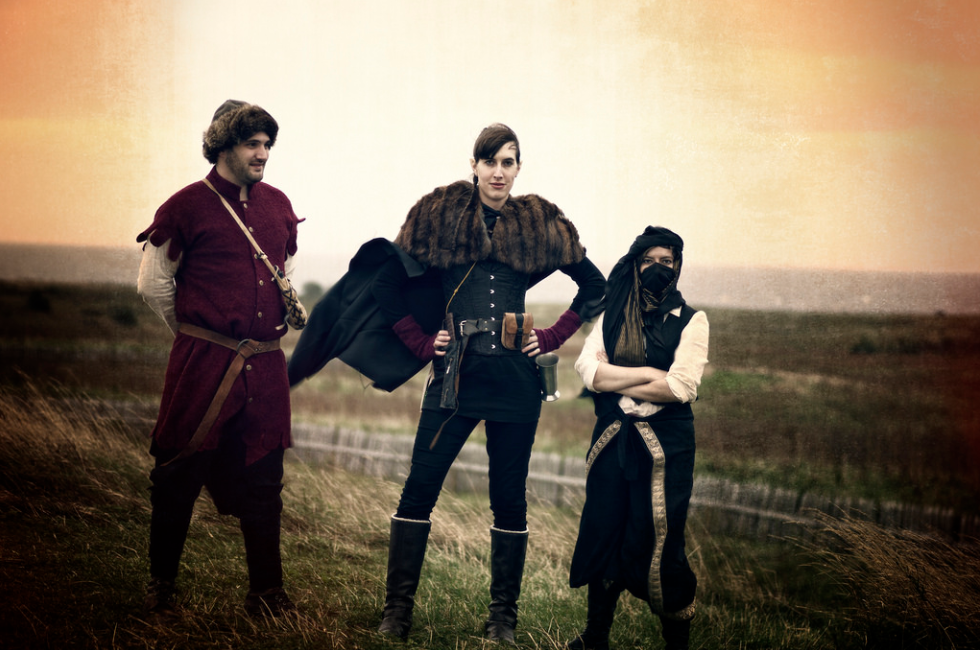
5. The World Can and Should Change
One of the greatest strengths of LARP, and in my opinion the greatest strength of LARP, is that it is being written in real-time, and the story can change on a dime based on anything that happens that weekend. I think about the poor programmers at Bioware having to write for every possible contingency that a player choose during the course of three 60-hour games of Mass Effect, and creating cut-scenes and dialogue trees based on every decision for 180-hours of gameplay. They had to write every single scene, which most players will never see, months before the game's release. Not with LARP! Players could pull an absolutely bonkers stunt in the middle of Saturday, causing a complete rewrite of Sunday, and you know what? That's ok. It's better than ok. That's the best a LARP can get.
The world can and should change, and the most powerful agent of change within the world should be the player actions and decisions. Have them choose sides in a political skirmish. Give them a choice about which trade caravans can set up shop. Let them write their own laws and set up their own government. Players love seeing the world shift based on their actions, and it's not difficult to give them that.
So what this means to a Shaper is that you shouldn't write a complete story from beginning to end and now where it's going at all times, because the story is far from only yours. You might have an idea of where it's going, and you certainly know more than the players, but in the end LARP is cooperative storytelling, and it's not just your baby. I've seen Shapers change a success mechanic just because the Players believed their solution would work to such an extent, we let it go because it was probably more clever than what we thought of. I've seen Players give antagonists exactly what they wanted without a second thought because they couldn't think of a reason not to. I've seen players burn bridge after bridge because they thought it was hilarious and as a Shaper I had to roll with those punches because it's just what I signed up for. LARP is much more improvisational theater than a novel, and as a Shaper you have to understand that.
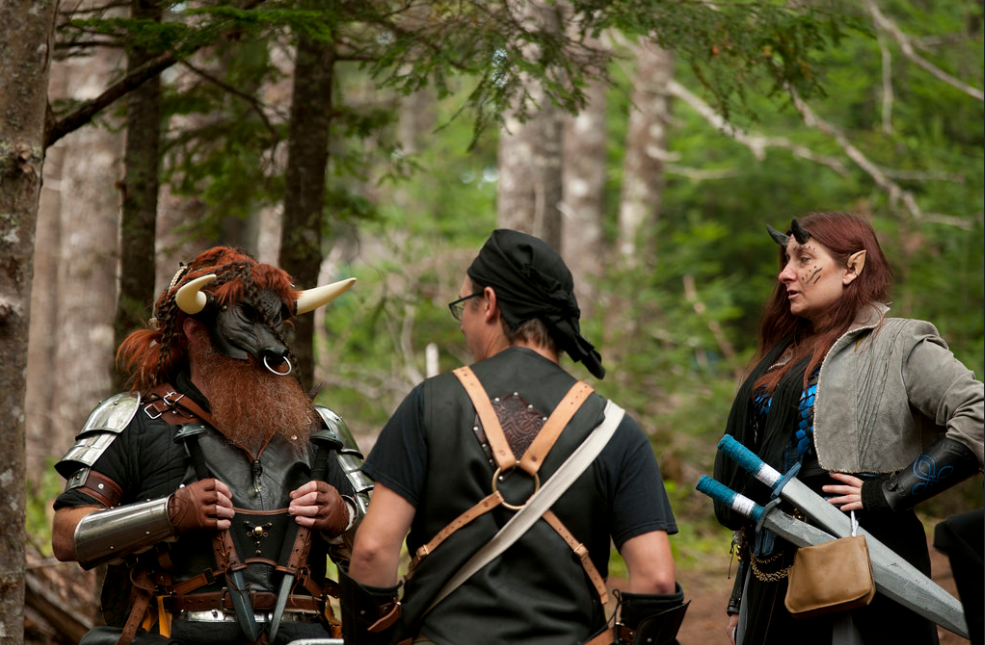
6. The Best Conflict is Player Conflict
Sure you can create compelling antagonists that your Players love to hate and can't wait to shove a sword through, but the most emotional, memorable experience of LARP comes when Players don't see eye-to-eye. And I'm not just talking about PvP combat. Any schmuck Shaper can mind control a player to go berserk in the middle of campfire storytime. It takes a smart and effective Shaper to make characters come to blows over religious, ethical, or political reasons.
The bottom line is Players just don't really care about thrusting a sword through an NPC, whether it's a merchant or demon spawn from hell. It's practically what NPC's were designed for. An actual argument between characters though raises the stakes to a place where things get uncomfortable, which is where the drama lies.
Last LARP season the Shaper team tried to create a decision based around two organizations. One being a corporate agency dedicated to progress, wealth, and creating safe environments for the proliferation of commerce and trade; the other being a primitive wild elf band who had lived in the woods for centuries, and held deep beliefs in tradition and conservation. Progress versus Tradition. Safety versus the Status Quo. Wealth versus Conservation. This made Players ask what their characters believed in, and take sides. Real drama with real stakes is where LARP shines.
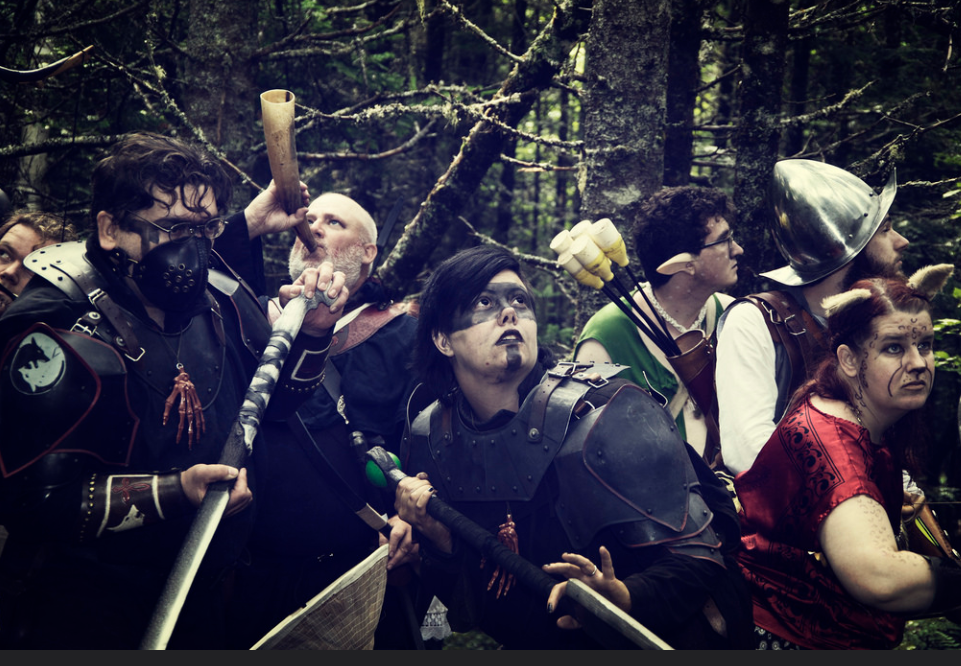
7. Never Shape to Win
One thing to always keep in mind when you're a Shaper is that in game, you're a god, but out of game, you're part of a business. I've already been over the fact that Shapers could kill every player by snapping their fingers, but the goal of any Shaper team is to leave their customers happy and with a memorable experience. That has nothing to do with lauding your power over players or conspiring against them. Maybe in the game you're above them, but out of the game, they're the ones giving money to keep this whole enterprise afloat, and you are their server.
Like I said before, being a Shaper is a lot of work. If you want to create a great game, you work from Friday evening to Sunday night, and prepare weeks in advance. But, creating a great game is the only reason you would ever put this much work into a job you're not getting paid to do. Every idea of glamour you might think would come with being on a Shaper team should immediately dissolve when you begin to understand how much work it takes to create a well-written and executed event. The real reward, and the reason I kept at it, was seeing your ideas come to life.
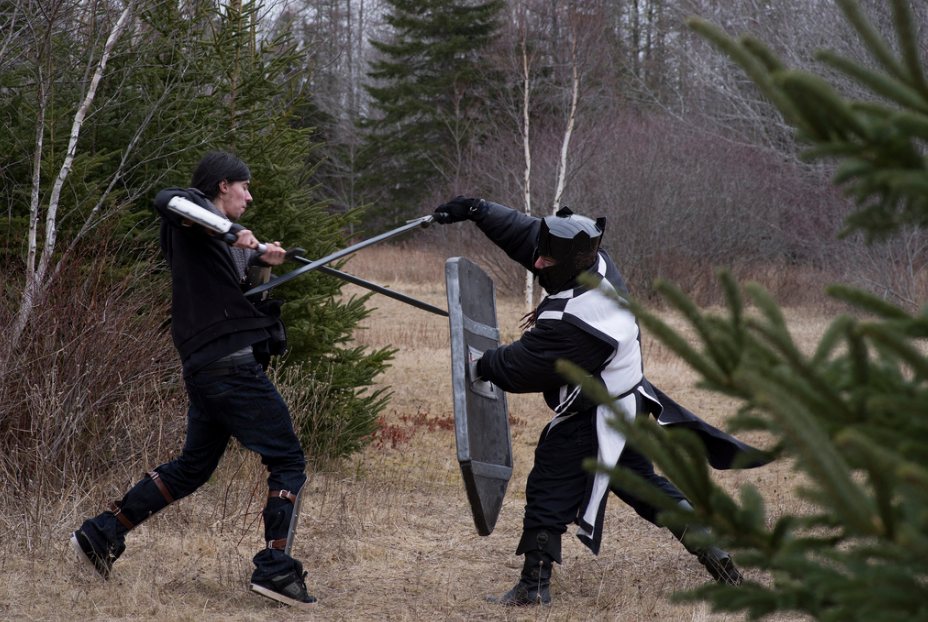
Well I suppose I had more to say about this than I thought, but who wouldn't? A quality LARP is part theater, part game, part fantasy novella, part combat sport, part Disney ride. It's a big, weird thing, and very little is written about actually putting one on. Also, these are just my ideas. My job as a Shaper was to make the event a game, which was always the lens through which I saw LARP. Other Shapers will have other opinions, and that's fine. At the end of the day, most of us are making it up as we go, and any LARP event should be a team effort, written and executed by a team of Shapers, all with different ideas and strengths regarding what a LARP is and can be.
It's not like I always followed these rules either. I'm sure a player or two from my LARP could point at some of these rules and say "Yeah, but what about that one time?" Well that one time I screwed up, evidently, but these rules are more aspiration and opinion than Holy LARP commandments. They're just what I think make a good game.
If you want to call me an idiot, a comment section is provided.

2 Comments Add a Comment?
Matt Earhart
Posted on March 2, 2019, 9:41 p.m.
Idiot.
Just kidding. This is all good advice for new and old shapers.
Fair Escape
Posted on March 6, 2019, 12:25 a.m.
Overall, some really solid advice! I agree with most of it.
I do want to say that "basically Dungeons and Dragons outside, with 10 or more people, all creating a story together while fighting, acting, solving puzzles and riddles, making decisions and becoming someone else over the course of a weekend." describes a specific form of live combat fantasy campaign LARP -- a subsection of a subsection of LARP and while it is probably the most popular form, I think it's important to be careful not to use language that implies all LARP fits into this category.
I also think it's important to be careful about statements like "the best conflict is player conflict" -- a lot of LARPs have issues with trying to control PvP that turns toxic, especially when the mechanical systems allow for large gaps in character capability -- which can happen either in systems where people can acquire large amounts of levels or XP (or whatever equivalent) and/or treasure, etc. or in games where combat is entirely based on player ability. And then you have people winning political arguments through violence or just plain old griefing, with powerful characters killing weaker ones for the loot or just the fun of it.
I definitely agree with you that there are communities of LARP which shy away too heavily from PvP, and writing sources of conflict into LARP which can't be solved by violence can be really hard, especially when most of your mechanics and character development centers around one's ability in combat. And this is doubly true in LARPs where NPCs are a scarce resource. But PvP that gets out of hand can really damage a LARP.
I also somewhat disagree with approaching LARP as a business with a hire-ee and customers... unless the LARP staff is actually making money of the LARP. Most of the LARPs I play, the LARP staff is doing it for fun, the staff and NPCs are all volunteers, and the cost of the LARP enables the LARP to break even. While it is super important to remember that players are paying good money (and investing in other ways, including time, effort, and emotions) to participate, player entitlement can also be an issue, and it's really important to remember the staff is doing this out of love, not profit. (Often. Again, it's different if the LARP staff is in fact turning a profit. I think it's good if the players know upfront if the LARP is turning a profit or not.)
Great article overall, lots of good advice!
(Ok one last quibble: "That's not to say you should never kill players" -- I'm sure you meant to say "that's not to say you should never kill characters" -- I feel pretty strongly you shouldn't be killing players. ;) )